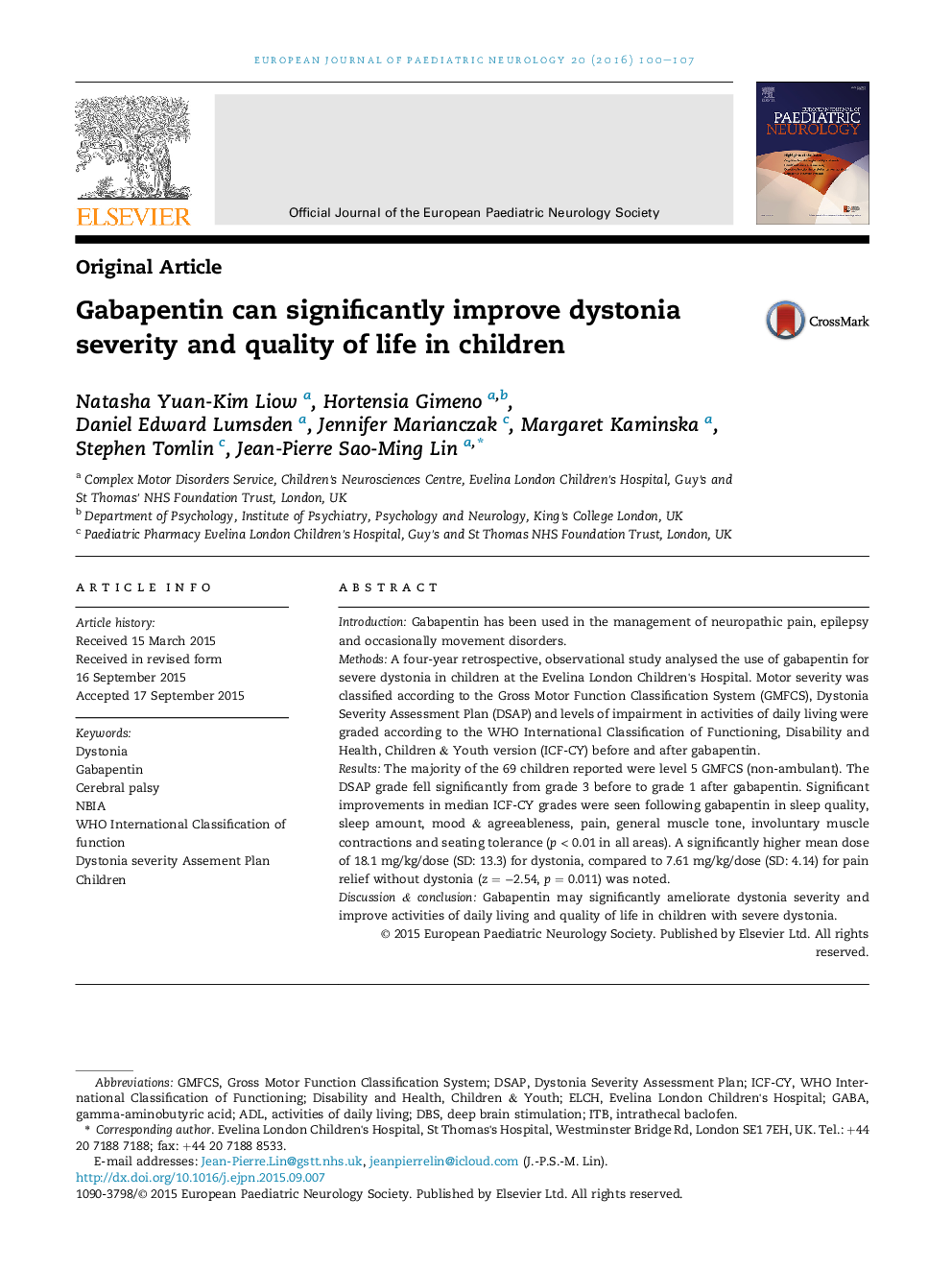| کد مقاله | کد نشریه | سال انتشار | مقاله انگلیسی | نسخه تمام متن |
|---|---|---|---|---|
| 3053663 | 1580009 | 2016 | 8 صفحه PDF | دانلود رایگان |
• Dystonia is often severe and unremitting in most children, despite conventional medication such as triheyphenidyl, baclofen, benzodiazepines and levodopa, irrespective of aetiology
• Gabapentin improved sitting and night-time sleep evaluated by the Dystonia Severity Action Plan (DSAP) and improved activity and participation measured with the WHO International Classification of Functioning, Disability and Health, Children & Youth version (ICF-CY).
• Gabapentin was well-tolerated.
• A significantly higher mean dose of 18.1 mg/kg/dose (SD: 13.3) for dystonia, compared to 7.61 mg/kg/dose (SD: 4.14) for pain relief without dystonia (z = −2.54, p = 0.011) was required.
IntroductionGabapentin has been used in the management of neuropathic pain, epilepsy and occasionally movement disorders.MethodsA four-year retrospective, observational study analysed the use of gabapentin for severe dystonia in children at the Evelina London Children's Hospital. Motor severity was classified according to the Gross Motor Function Classification System (GMFCS), Dystonia Severity Assessment Plan (DSAP) and levels of impairment in activities of daily living were graded according to the WHO International Classification of Functioning, Disability and Health, Children & Youth version (ICF-CY) before and after gabapentin.ResultsThe majority of the 69 children reported were level 5 GMFCS (non-ambulant). The DSAP grade fell significantly from grade 3 before to grade 1 after gabapentin. Significant improvements in median ICF-CY grades were seen following gabapentin in sleep quality, sleep amount, mood & agreeableness, pain, general muscle tone, involuntary muscle contractions and seating tolerance (p < 0.01 in all areas). A significantly higher mean dose of 18.1 mg/kg/dose (SD: 13.3) for dystonia, compared to 7.61 mg/kg/dose (SD: 4.14) for pain relief without dystonia (z = −2.54, p = 0.011) was noted.Discussion & conclusionGabapentin may significantly ameliorate dystonia severity and improve activities of daily living and quality of life in children with severe dystonia.
Journal: European Journal of Paediatric Neurology - Volume 20, Issue 1, January 2016, Pages 100–107
